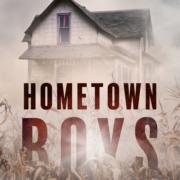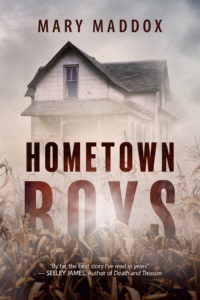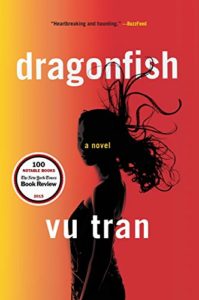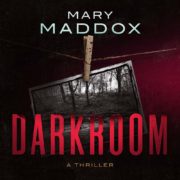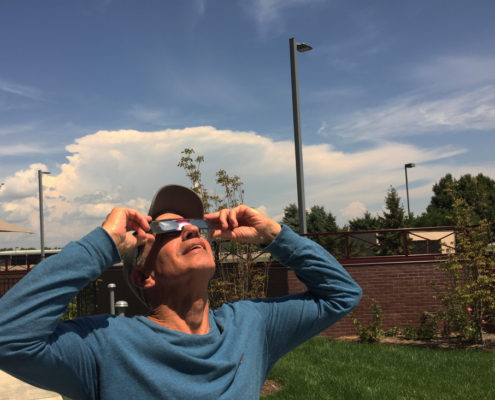Look for Daemon Blood, the third volume of the Daemon World series, on March 8, 2022.
The first novel in the series, Talion, recounts how the serial killer Rad Sanders stalks and kidnaps fifteen-year-olds Lu Jakes and Lisa Duncan. Lu must turn to the daemon Talion for help. But he has a price. Ten years later, in Daemon Seer, he comes to collect payment. Lu must undergo a harrowing ceremony and bear a child who will eventually replace her as his servant. Helpless against the daemon’s power and determined to save Lisa from a new sadist’s grip, Lu surrenders to Talion. She submits to the ceremony and with his help rescues Lisa. Daemon Blood picks up their story five years later.
In the first chapter, “Born Victim,” Lisa finds herself unwillingly drawn back into the daemons’ world.
1: Born Victim
Panic wells up in Lisa as the drugstore’s automatic door slides open and winter air balloons against her face. The idea of stepping outside suddenly terrifies her. Post-traumatic stress, says her therapist, Sandi—as if naming a thing steals its power. A bearded guy in a camo jacket is close behind her. She has to move. Clutching her plastic bag of antidepressants and tampons like a talisman, she hurries through the door.
A semi rumbles past on the two-lane highway beyond the drugstore’s narrow parking lot. Its diesel fumes trigger the usual nausea. The clouds unveil the sun. She imagines getting in her beat-up Honda Civic, driving until it runs out of gas, and then walking until her legs buckle. Wherever she ends up will be fine with her.
“Hey Lisa!” A gaunt man pops out of his SUV and trots across the parking lot. His glossy parka, unzipped despite the subfreezing day, bounces against his fashionably threadbare jeans.
He’s no one she knows or wants to know. She plunges her hand into her purse as she runs for her car. Where are the stupid keys? She’s still groping for them when she reaches the Civic.
A hand seizes her shoulder and spins her around. The man in the parka presses her against the car, his groin against hers, and pokes her in the ribs with something hard. She looks down at a pistol with a short barrel, almost toylike. His open parka conceals the gun from anyone watching. Not that anyone is. Halfway across the lot, the bearded guy is climbing into a truck jacked up on monster tires. She doubts he noticed her at all. “Sorry, Lisa,” the gunman says. “I know what you’ve been through and I hate—really hate—doing this. But we need to talk.”
Panic muffles everything but her thumping heart. She wrenches her gaze from the gun to his face and opens her mouth to scream, but his eyes silence her. Colorless irises encircle the bottomless wells of his pupils. Her scream drowns in their depths, but she manages to whisper. “Who are you?”
“Willard Steeples.” His grin displays a mouthful of capped teeth edged with black along the gum line. “Author of Professor of Death.”
Evil parasite, feeding on people’s suffering. On her suffering. When she was fifteen, a psychopath tortured and disfigured her, and Steeples’ book made her into a freak show.
“You’re angry,” he says. “I get that. But your story doesn’t end with the Professor. There’s Grifford Riley, the bent cop from Chicago.”
She finally manages to speak. “What do you want?”
“This isn’t about what I want. My readers cry out for the truth.”
In the five years since fleeing to Utah to escape Riley, Lisa has managed to recover a fraction of her life. She overcame an opioid addiction. She fought the posttraumatic stress of having been raped and tortured, and she began to dream of a life not defined by the violence done to her. Now this ghoul wants to suck her back into the nightmare.
“Please. Leave me alone.”
“Sorry. No can do. My publisher’s gonna cut me loose if I don’t deliver another book on you by the end of the month. She said it’s my last chance.”
His publisher. Like she cares.
He prods her with the gun, a reminder. Even years after the surgeries, her face still aches in the icy wind. A frozen mask of pain, worse when she’s afraid. Steeples can have the story—some of it, anyway—but the dread lurking in her gut tells her that he wants more. A lot more.
“Okay, I’ll talk to you. There’s a coffee house on the Square.”
“No. Not after this.” He glances apologetically at the pistol. “I knew you wouldn’t talk to me unless I forced you to.”
Another semi crawls past, picking up speed after the stoplight. If the driver looks their way, he won’t see any gun—only a man and woman beside a car, close enough to be lovers. Despair chokes her. “My mother—expects me home.”
“I’ll have you back in an hour.” He grabs Lisa by the elbow, jabs the gun in her back, and hustles her to his SUV, a gray Ford Edge. Scream, she thinks as he yanks open the passenger door. Last chance. But no one is close enough to hear, or to stop him if he shoots her and drives away. He shoves her onto the seat. The label of a car rental company decorates the dash. It reassures her a tiny bit. Someone at the rental office will be able to identify him, assuming he cares about getting caught.
The other times she was kidnapped, she fought hard. This time, as Steeples gets into the Edge, she wonders if her life is still worth the trouble. Then she hears her therapist’s voice reminding her how much she’s endured. She’s lived through experiences that would’ve broken a lot of people. She clasps her hands to stop them from shaking. She can survive Willard Steeples.
As he peels out of the parking lot, she glimpses a ponderous figure near the pharmacy entrance. Mrs. Arlow, overweight and asthmatic, squints at the departing Edge. She lives down the street from Lisa’s parents. She might notice Lisa driving away with a stranger and call her mother. But Mrs. Arlow wouldn’t have a reason to remember any important details—the nondescript gray of the SUV, the make or license number—that could help the cops find Steeples.
He drives west, steering lefthanded so he can keep the gun pointed at Lisa. They pass the Seville Veterinary Clinic, Charlie’s Soft Serve Ice Cream, Morris Chiropractic, the Chevy dealership with its lineup of gleaming pickups beneath colorful plastic pennants, and the First Christian Church with its sign asking, will your eternal home be smoking or nonsmoking. It’s late November, and Christmas wreaths decorate the telephone poles along the highway. Cardboard signs nailed to the poles honor the military service of local young people. Lisa recognizes a few names from junior high. She missed high school because of the surgeries. She got her GED six years ago, back when she dreamed of studying at the Art Institute in Chicago.
“Where are we going?”
Steeples’ eyes flick toward her then back to the highway. “There’s a few cabins on the lake. No one uses them this time of year.”
“You’re from around here?”
“Nope. I just do my research.”

A mile or so after they leave Seville behind, Steeples turns onto a county road that cuts a straight line through fields stubbled with the remains of corn stalks. The tires bump over rough spots in the pavement, but the SUV’s suspension softens the ride. At least she’s riding to possible death in relative comfort.
A mile or so after they leave Seville behind, Steeples turns onto a county road that cuts a straight line through fields stubbled with the remains of corn stalks. The tires bump over rough spots in the pavement, but the SUV’s suspension softens the ride. At least she’s riding in relative comfort toward her possible death.
Regardless of what Steeples says about wanting her story, the vacancy in his eyes scares her. And an interview conducted at gunpoint? The whole situation radiates the weirdness of the daemon world. Lisa is wired into that world because of Lu, her closest friend. A friend she cut out of her life. Lu is a daemon seer. She possesses the talent to anchor daemons to the physical world, and five years ago she swore an oath to serve the daemon Talion. Lisa watched in numb horror as her friend knelt. She owes Lu and Talion for saving her life, and she’s grateful. But she just wants to forget about daemons.
For the past two years, she’s ignored Lu’s telepathic calls. Several months ago, Lu stopped trying and Lisa was relieved. Until now.
Lu! I need help!
No answer. Maybe the connection between them has withered, thanks to her.
Lu! I’m with Steeples, he kidnapped me.
Steeples turns onto a narrower road. The flat fields give way to rolling meadows and stands of leafless trees, their branches clawing at the iron-gray sky, bird nests bulging from them like tumors. The SUV rolls across a rusted bridge that looks a hundred years old.
“You do keep getting kidnapped. This is—what—the third time?” Steeples flashes a wolfish grin, showing off those corroded capped teeth. “Only this time Lu isn’t here to save you.”
She tells herself it’s a coincidence, that he isn’t tuning in on her thoughts. “What do you really want?”
“I told you. Your story. Your whole story. And you’ll give it to me before we’re done.”
The road widens into a clearing and ends at a low metal gate with a sign: closed until spring. Steeples stops the Edge. “Don’t move.” He slides out and circles to the passenger side, keeping the gun trained on Lisa. “Now get out.”
She gets out.
“Give me your phone.”
“I didn’t bring it.”
He uses his left hand to pat down her pockets and then pluck the canvas purse from her shoulder. He dumps the contents on the ground.
Lisa squats and picks up her wallet and a ballpoint pen. She leaves an almost empty pack of Kleenex, a couple of receipts, a shopping list, and a cough drop covered with fuzz. Steeples returns the purse. She drops the wallet and pen into it and stands. “I told you.”
“Pick up those receipts and the paper with your writing on it.”
She gathers the muddy slips of paper and stuffs them in her pocket. “Now you can shoot me or whatever.”
Willard Steeples giggles. “Leave your purse in the car. I’m not going to kill you, scout’s honor.”
She imagines him as a scrawny Boy Scout that the others picked on. She doubts he has any honor.
“Go around the gate post,” he says.
She squeezes between the post and the thorny branches of a bush. Steeples follows. She hopes the thorns will catch on his parka, but he carefully avoids them. They make a turn and Lake Seville spreads in front of them, lapping the pebbly shoreline and reflecting the gloomy sky. The wind blows harder and colder over the water. Ahead of them, a green prefab cabin sits on a slope overlooking a boat ramp.
“Is that where we’re going?”
He waves her forward. “Stay in front of me.”
As they walk along the shoreline, she concentrates on bridging the thousand miles between her and Lu with a strong and simple message. Help me help me help me. She half-heartedly thinks of running for the trees. Who knows, he might be a crappy shot. She keeps plodding toward the cabin.
Every nerve in her body screams for Vicodin. She stopped using almost three years ago and—with the exception of one slip—she’s stayed clean. She feels okay most of the time. But now, with the gun nudging her spine, time falls away and she’s raw again.
“I have codeine,” Steeples says. “You can have some when we get to the cabin.”
From behind her he can’t see whatever pain her face might be betraying. She reaches out to him with her thoughts. What’s the deal? Can you read my mind? Nothing comes back, but she senses an empty tunnel like the one where she and Lu used to communicate.
Beyond the lake the distant treeline clings like gray lint to the water’s edge. No sign of human life. “What are you on?” she says. “Not just codeine.”
“What do you think I’m on?”
“You look like a tweaker. Or maybe coke.”
“Would you like some?”
“No. And I don’t want your fucking pills either.”
He chuckles. “You might change your mind.”
Her stomach drops.

They climb a dirt path to the cabin. The window beside the door is broken, the glass removed from its frame. Steeples must have scouted the location and busted in. He opens the unlocked door. “After you, Sugar Pie.”
She enters the dim, musty space. Freezing wind from the lake howls through the broken window. The cabin is one room. A bed sags beneath a ratty quilt. A couch and two chairs huddle around a blackened fireplace. Steeples prods her toward the couch with the gun barrel.
“I’m cold,” she says. “Can I get that quilt?”
“Have a seat. I’ll bring it to you.”
The odor of mold wafts up from the cushion where she sits. He wedges the gun into the waistband of his jeans, raising Lisa’s hopes. With luck he’ll shoot his dick off. He fetches the quilt and covers her from the neck down, tucking its edges beneath her thighs, pinning her arms.
“There. Nice and toasty.” The damp quilt leaches the warmth from her. She pulls it loose.
Steeples plops into a wooden rocking chair. He scoops his phone from his pocket and stabs his finger several times at the screen. The chair creaks as he leans forward and places the phone on the low table between them. “Okay, let’s start with Grifford Riley. Tell me about him.”
Lisa will never forget the psychopathic cop who almost killed her, but she keeps her face blank.
“You know, I wanted an ‘after’ picture of you for Professor of Death,” he says. “Your bitch mother wouldn’t give me one, but now I can take one for this book. The main focus is Riley, but I’ll revisit your ordeal at the hands of Rad Sanders, too. People love that shit. I mean the parallels are dramatic. Twice you’re kidnapped and horribly assaulted. Twice you’re rescued by Lu, a mousy little girl in glasses. We’re talking best-seller, guaranteed.”
When Rad was finished with Lisa, her face had resembled raw meat. Steeples, the piece of shit, wanted to display that ugliness to the world. Anything to make money.
“So, what’s the title gonna be?”
“I was thinking Born Victim: The Unfortunate Life of Lisa Duncan. But my editor isn’t crazy about it.”
“Me neither.”
“Back to Riley. I need the whole truth, the untold story. He followed you to Park City and then grabbed you and drove to a motel outside Laramie. That’s where things get mysterious. Lu rescued you. How’d she manage that?”
“He went for cigarettes.”
“Bullshit. Only one place near the motel was open. A gas station. The clerk doesn’t remember Riley, but he remembers Lu buying snacks and bottled water.”
“That was later, after she got me out of there.”
“It doesn’t make sense, her stopping a couple miles from the motel when she knew Riley would be coming after you both.”
“Ask her.”
“She won’t talk to me.” He shoots her a reproachful look as though Lu’s silence is her fault. “Let’s talk about the stolen Ferrari you abandoned in Park City. At least that’s your story. How come no one saw it there and the cops never found it? Doesn’t sound like the kind of car you overlook.” Steeples grins as if he hears her nerves shrieking. “Sure you don’t want a Vicodin?”
She has no name for the wrongness in him, a hunger that brushes past her on its hunt for the food it really wants. “I can’t tell you anything you don’t already know. Please. Take me back into town.”
Lu ambushed Riley while he was on top of Lisa, shoved him into the narrow space between bed and wall, and stabbed him over and over with a sharp piece of metal. The hulking police detective broke Lu’s arm, but she blinded him and pulverized his testicles. Lisa’s breath snags as she remembers the viciousness of the attack. Lu was possessed by Black Claw, a daemon. But still.
All at once he leers. “What’s she up to?”
“Lu? I don’t know, we don’t talk.”
“You’re telling me they broke the connection?”
“Who’s they?” Her heartbeat speeds, pumping up her panic, and her head feels large and insubstantial, a membrane about to disintegrate. “What connection?”
He stares at Lisa as though deciphering her secrets. “Don’t tell me the bitch let Talion cut you loose.” He breaks into a stuttering laugh—heh-heh-heh-heh-heh—a crowing voice that no longer belongs to him. A daemonic voice. “You’re dead,” the daemon says in a childish singsong. It stands and draws the pistol.
Her heart trips ahead of the frozen moment. She springs from the couch and darts sideways, holding up the moldy quilt like a shield. The daemon fires the gun and the world goes silent. The quilt is burning. She drops it and runs blindly. A bullet splinters the doorframe as she yanks the door open. On the porch a woman knocks her aside with the shotgun she’s gripping in both hands. Lisa stumbles a few steps before falling. Her arm and shoulder hit the frozen dirt with a jolt that snaps her teeth together. More gunfire erupts inside the cabin. The muffled pops seem miles away to Lisa’s stunned ears. She crawls down the path until shock overtakes her and she lies still on the lakeshore, tasting blood from her bitten tongue. The world blurs.
Someone grabs her arm and pulls her over and up onto her butt. Stand, the woman with the shotgun orders her. Lisa struggles to her feet. The woman wears maroon yoga pants and an orange hunting jacket. Her face, puffy and creased, reddened by the cold, looks vaguely familiar—someone glimpsed in the supermarket or the thrift store on the Square. Her eyes gleam like dark ice, inhuman. Why did you go with the journalist? Even the Flame is not reckless enough to kill you in a public place. Half-deaf from the gun blasts, Lisa realizes the woman is speaking in her mind. Not the woman but the daemon inside her.
Who’s the Flame?
The daemon heads back toward the cabin, its stride hampered by the woman’s stubby legs. It wears her body like ill-fitting clothes. Lisa hurries to catch up. What’s happening? Is Lu in trouble?
The seer makes her own trouble.
Inside the cabin, Steeples’ body sprawls behind the overturned rocking chair, the face and chest like raw chuck. The stink hits her and sourness floods her mouth.
“Do not vomit.” Speaking aloud now, the daemon stoops and picks up Steeples’ gun. “Tell me what you touched.”
“Just that quilt.”
“Bring it. And the phone.”
Lisa grabs the phone from the table and checks the screen. “It’s recording us.”
“I will destroy it.”
“The recording could’ve been uploaded to the Cloud.”
The daemon gives her a razor-thin smile. “Perhaps you’re not altogether useless.”
“Thanks. I guess.” She hands over the phone. “Why did you save me?”
“Talion commanded it. I would have preferred the Flame destroy you.”
Careful not to look again at Steeples’ body, Lisa follows the daemon out of the cabin and down the dirt path. She clutches the phone in one hand and drags the singed quilt with the other. The daemon points to the boat ramp. “Go to the end and toss the quilt and phone in the lake.”
“The lake’s too shallow there,” Lisa says. “The cops will find the phone. And the quilt’s probably gonna wash ashore.”
“It makes no difference.” The daemon stands on the path, hands on hips and elbows spread wide. “The water will destroy any trace of you.”
The cops might still find a hair or fingerprint in the cabin or rental car. “Why don’t you just burn down the cabin?”
“A fire draws too much attention. Do as I say.”

Lisa tosses the evidence in the water and returns to the path. “Now what?”
“I will drive you to your car.”
They hike along the lake, backtracking to the road where Steeples left his rented SUV. Water laps at the shore and their shoes crunch against the pebbles. Icy wind whistles in Lisa’s ears and makes them ache. At least her hearing has come back. She wonders if Lu received her telepathic call for help and asked Talion to send this daemon, or if Talion was watching from the start. “Why was the daemon inside Steeples after me?”
“The reasons do not concern you.” Her rescuer’s harsh speech sounds strange coming from the rural Midwestern woman cradling a shotgun. She looks like a nice lady who probably goes to church on Sunday and spoils her grandchildren with cookies.
“What’s gonna happen to the woman you’re possessing? Will she remember any of this?”
The daemon fixes its empty eyes on Lisa. “You are a parasite. Were it not for the seer’s pleas on your behalf, you would have been destroyed.”
Lisa feels herself contract like a turtle withdrawing into its shell. Only she has no shell. She’s at the mercy of this monster. She wipes her nose with her sleeve and trembles as they trudge along the lakeshore.
The daemon opens the door of a battered blue Toyota pickup parked beside the Ford Edge.
“My stuff,” Lisa says. “It’s in Steeple’s car.”
“Get in the truck.” The daemon batters the Edge’s window with the shotgun stock until it punches through the safety glass. It reaches through the hole to unlock the door and then retrieves Lisa’s purse and the bag holding her drugstore purchases.
According to the clock on the dash, Lisa has been gone three hours. Way too long for a run to the pharmacy. She needs an excuse—a flat tire, an old friend who asked her for coffee, a spur-of-the-moment drive along country roads. The drive, she decides. Mom will yell at her for making them worry, but the other bogus excuses could be too easily checked.
When they enter Seville, she crouches out of sight and digs for her keys. Of course she finds them with no problem now that she’s not in desperate peril. The daemon stops in the drugstore parking lot and waits, silent.
“Goodbye,” Lisa says. “And thanks.”
“Get out.”
By the time she reaches her old Civic, the daemon is pulling onto the highway, headed back toward the lake. The possessed woman probably lives somewhere out that way. Lisa hopes she’ll be okay.
She clutches the wheel for several minutes, drawing slow, deliberate breaths the way the biofeedback guy in rehab taught her. The odor of mold clings to her like guilt.
Other books in the Daemon World series are Talion and Daemon Seer.
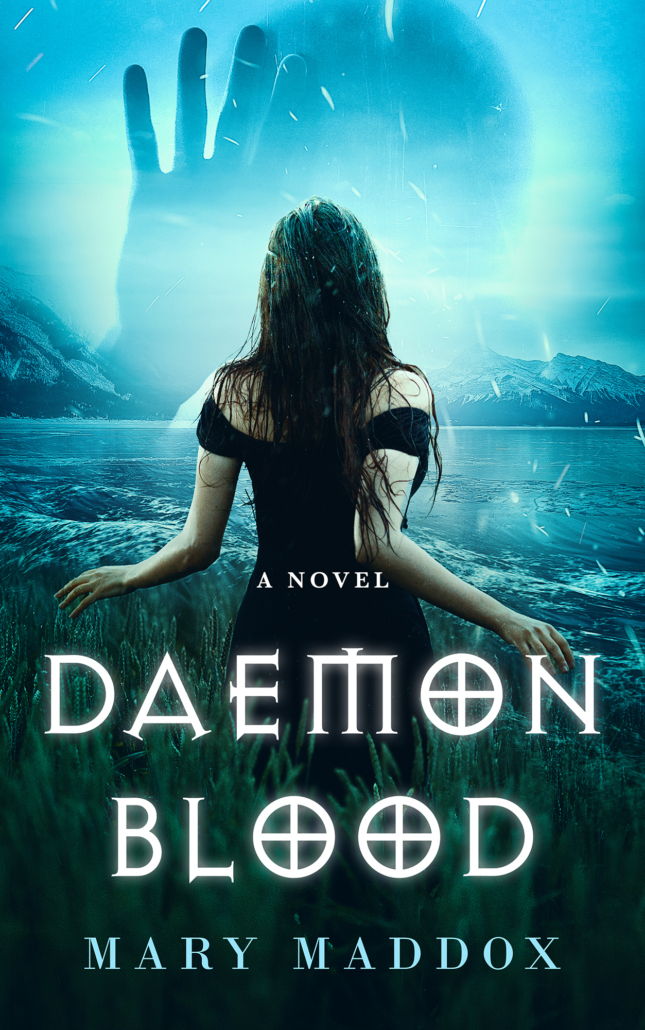

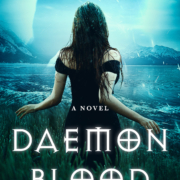
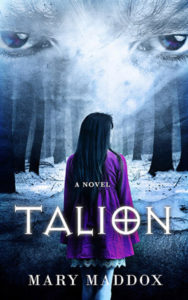
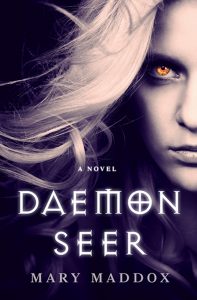



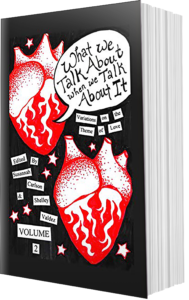


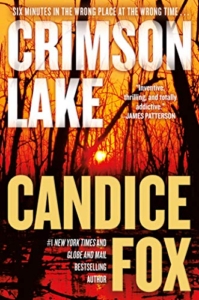
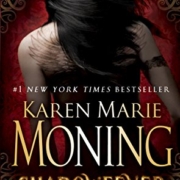
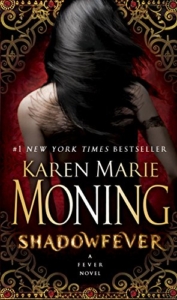





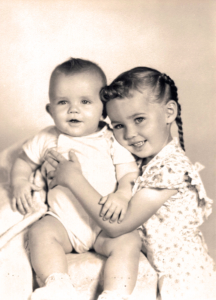
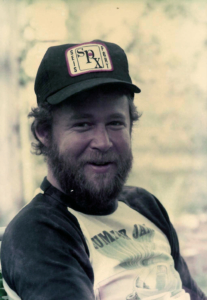 In his late twenties Steve worked in oil exploration, an outdoors job that made him physically strong. In his thirties he lifted weights to maintain his fitness. He was big and formidable, the kind of man who could and did mete out punishment to anyone who messed with him. With me and others he loved, he could be kind, generous, and forgiving. But that softness had to be armored, always.
In his late twenties Steve worked in oil exploration, an outdoors job that made him physically strong. In his thirties he lifted weights to maintain his fitness. He was big and formidable, the kind of man who could and did mete out punishment to anyone who messed with him. With me and others he loved, he could be kind, generous, and forgiving. But that softness had to be armored, always.